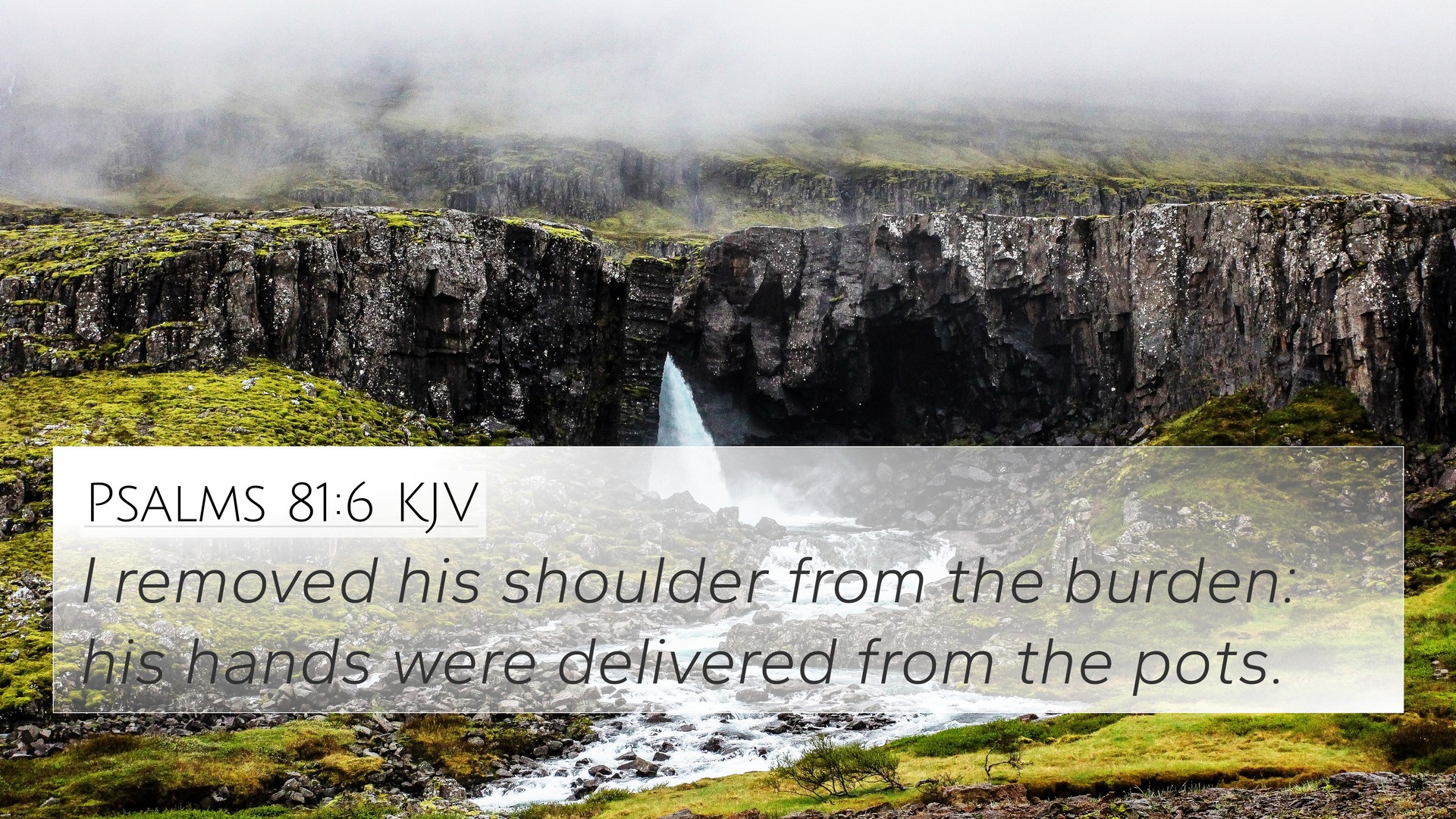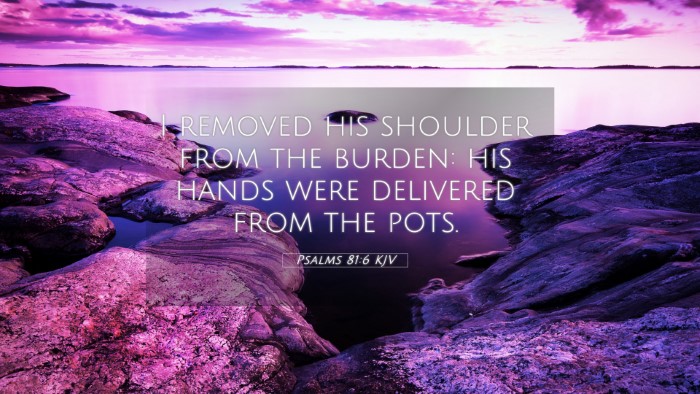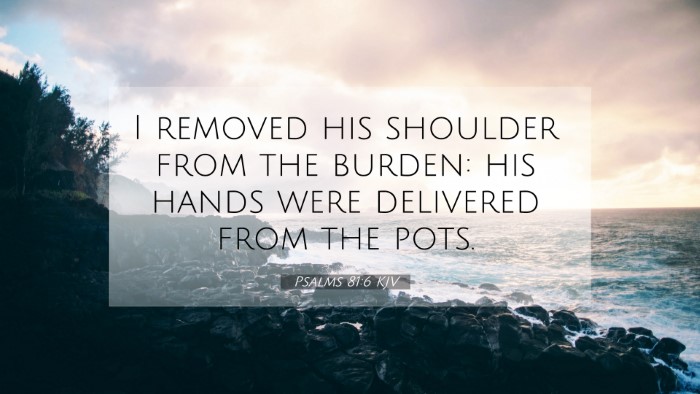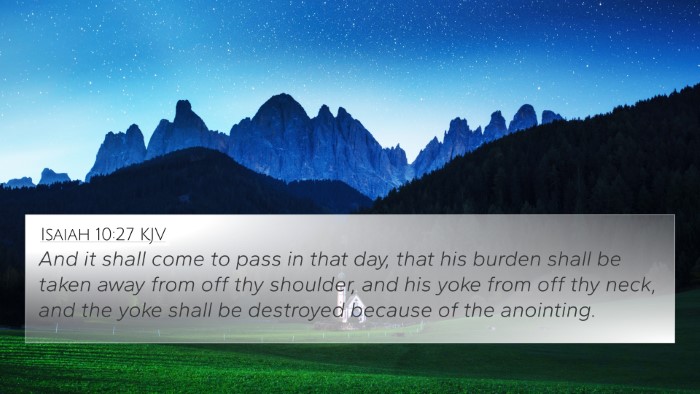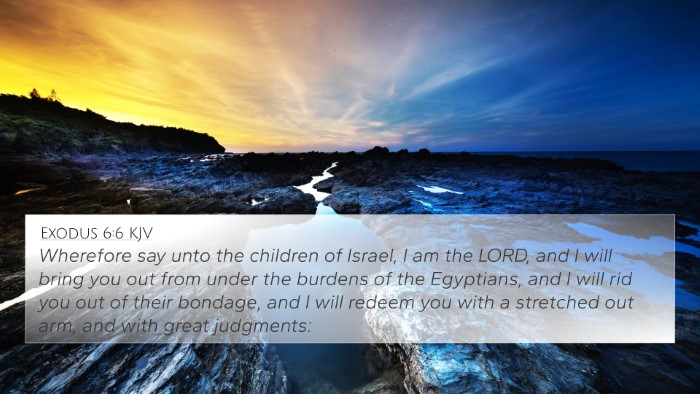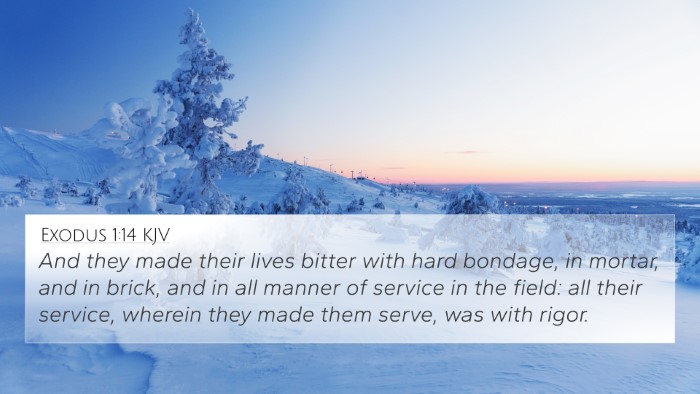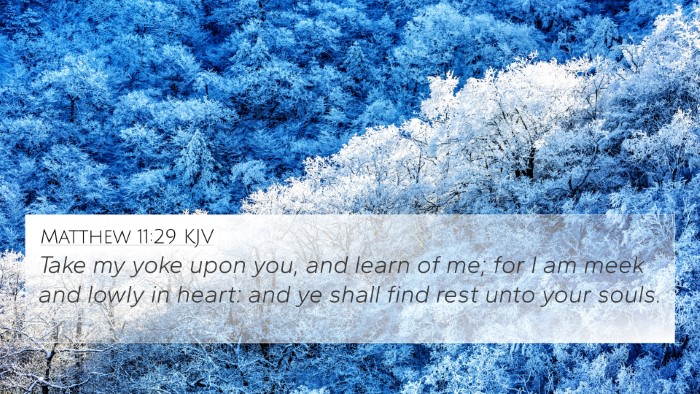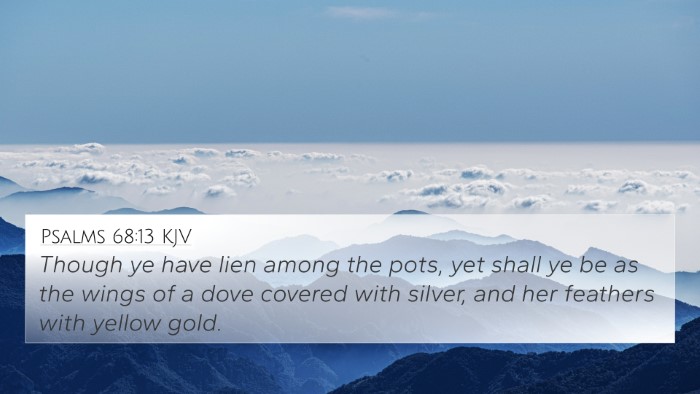Psalms 81:6 - Understanding the Verse
Psalms 81:6 states: "I removed his shoulder from the burden: his hands were delivered from the pots." This verse highlights God's act of liberation and deliverance, pivotal themes throughout the Scriptures.
Context of Psalms 81:6
This verse occurs within a Psalm that serves as a reminder to Israel of God's past deliverances, particularly from Egypt. The phrase "I removed his shoulder from the burden" symbolizes a release from oppression, reflecting God's faithfulness in bringing His people out of slavery.
Commentary Insights
Matthew Henry's Commentary
Matthew Henry emphasizes that this verse illustrates God's compassion towards His people. He notes that it speaks of the Israelites' bondage in Egypt and how God lifted their burdens. This divine assistance was not merely physical but also spiritual, providing Israel with a sense of freedom and assurance.
Albert Barnes' Notes
Albert Barnes elaborates on the metaphor of removal and gives insight into God's deliverance as a significant act of grace. He points out that the "shoulder" represents the weight of oppression and that God intervenes to alleviate such burdens. Barnes also suggests that this verse serves as a reminder of God's ongoing support for those who feel weighed down by life's challenges.
Adam Clarke's Commentary
Adam Clarke draws attention to the historical aspect of the verse, focusing on how it reflects God’s deliverance of Israel from Egypt. He highlights that the "pots" are indicative of their forced labor, and God’s act of release is portrayed as a moment of profound grace and redemption. Clarke interprets this verse as a call for Israel to remember their past so they can embrace the freedom God provides.
Thematic Connections
Psalms 81:6 can be linked to several other Bible verses that share themes of deliverance and God's faithfulness:
- Exodus 6:6 - "Wherefore say unto the children of Israel, I am the LORD, and I will bring you out from under the burdens of the Egyptians." This highlights God's promise of deliverance.
- Isaiah 58:6 - "Is not this the fast that I have chosen? to loose the bands of wickedness, to undo the heavy burdens." This verse underscores God’s intention to free His people.
- Matthew 11:28 - "Come unto me, all ye that labour and are heavy laden, and I will give you rest." This verse echoes the theme of finding relief in God.
- Galatians 5:1 - "Stand fast therefore in the liberty wherewith Christ hath made us free." This ties the deliverance theme into the New Testament context.
- Psalm 145:14 - "The Lord upholdeth all that fall, and raiseth up all those that be bowed down." Reflecting God's ongoing support.
- Romans 8:1 - "There is therefore now no condemnation to them which are in Christ Jesus." This emphasizes spiritual liberation.
- Isaiah 40:29 - "He giveth power to the faint; and to them that have no might he increases strength." Highlighting God's strengthening nature.
Connections Between Bible Verses
This verse not only captures God's deliverance historically but also positions itself within a broader narrative of liberation found throughout the Bible. These connections encourage believers to look for the thematic consistencies in Scripture, enhancing understanding through comparative Bible verse analysis.
Conclusion
Psalms 81:6 serves as a powerful reminder of God's faithfulness in delivering His people from oppression. Through careful cross-referencing with other scriptures, one can see the pervasive theme of liberation that characterizes key moments in Biblical history. Tools for Bible cross-referencing, such as concordances and Bible cross-reference guides, enable deeper insight into these connections. Understanding these verses not only enriches one's faith but also empowers believers to trust in God’s promises of deliverance.
Further Study Recommendations
For those looking to explore more about deliverance in the Bible, consider examining:
- Cross-reference Bible study methods to identify similar themes.
- Detailed cross-reference between Gospels for New Testament insights.
- Identifying connections between Old and New Testament to see how God's deliverance is a continuous promise.
